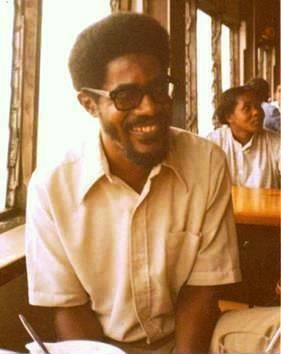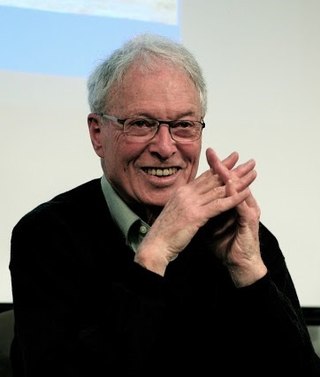
Colonialism is the pursuing, establishing and maintaining of control and exploitation of people and of resources by a foreign group of people. Implemented through the establishment of coloniality and possibly colonies, this colonization keeps colonized territory and people socio-economically othered and subaltern to colonizers and their metropole. While frequently advanced as an imperialist regime, colonialism can also take the form of settler colonialism, whereby colonial settlers invade and occupy territory to permanently replace an existing society with that of the colonizers, possibly towards a genocide of native populations.

The term "Third World" arose during the Cold War to define countries that remained non-aligned with either NATO or the Warsaw Pact. The United States, Canada and their allies represented the "First World", while the Soviet Union, China, Cuba, North Korea, Vietnam, and their allies represented the "Second World". This terminology provided a way of broadly categorizing the nations of the Earth into three groups based on political divisions. Due to the complex history of evolving meanings and contexts, there is no clear or agreed-upon definition of the Third World. Strictly speaking, "Third World" was a political, rather than economic, grouping.

Import substitution industrialization (ISI) is a trade and economic policy that advocates replacing foreign imports with domestic production. It is based on the premise that a country should attempt to reduce its foreign dependency through the local production of industrialized products. The term primarily refers to 20th-century development economics policies, but it has been advocated since the 18th century by economists such as Friedrich List and Alexander Hamilton.

Walter Anthony Rodney was a Guyanese historian, political activist and academic. His notable works include How Europe Underdeveloped Africa, first published in 1972. Rodney was assassinated in Georgetown, Guyana, in 1980.
Dependency theory is the idea that resources flow from a "periphery" of poor and exploited states to a "core" of wealthy states, enriching the latter at the expense of the former. A central contention of dependency theory is that poor states are impoverished and rich ones enriched by the way poor states are integrated into the "world system". This theory was officially developed in the late 1960s following World War II, as scholars searched for the root issue in the lack of development in Latin America.

Underdevelopment, in the context of international development, reflects a broad condition or phenomena defined and critiqued by theorists in fields such as economics, development studies, and postcolonial studies. Used primarily to distinguish states along benchmarks concerning human development—such as macro-economic growth, health, education, and standards of living—an "underdeveloped" state is framed as the antithesis of a "developed", modern, or industrialized state. Popularized, dominant images of underdeveloped states include those that have less stable economies, less democratic political regimes, greater poverty, malnutrition, and poorer public health and education systems.

The economy of Africa consists of the trade, industry, agriculture, and human resources of the continent. As of 2019, approximately 1.3 billion people were living in 53 countries in Africa. Africa is a resource-rich continent. Recent growth has been due to growth in sales, commodities, services, and manufacturing. West Africa, East Africa, Central Africa and Southern Africa in particular, are expected to reach a combined GDP of $29 trillion by 2050.

The Banque de l'Afrique Occidentale was a French bank established in 1901 to issue currency for the colonies of French West Africa.

Western European colonialism and colonization is the policy or practice of acquiring full or partial political control over other societies and territories, founding a colony, occupying it with settlers, and exploiting it economically. For example, colonial policies, such as the type of rule implemented, the nature of investments, and identity of the colonizers, are cited as impacting postcolonial states. Examination of the state-building process, economic development, and cultural norms and mores shows the direct and indirect consequences of colonialism on the postcolonial states.
In international economics, overdevelopment refers to a way of seeing global inequality and pollution that focuses on the negative consequences of excessive consumption. It exists as the mutually constitutive counterpart to the more commonly known concept of 'underdevelopment'.

Open Veins of Latin America: Five Centuries of the Pillage of a Continent is a book written by Uruguayan journalist, writer, and poet Eduardo Galeano, published in 1971, that consists of an analysis of the impact that European settlement, imperialism, and slavery have had in Latin America.
The history of external colonisation of Africa can be dated back from ancient, medieval, or modern history, depending on how the term colonisation is defined.
Africa has a large quantity of natural resources, including diamonds, sugar, salt, gold, iron, cobalt, uranium, copper, bauxite, silver, petroleum, natural gas and cocoa beans, but also tropical timber and tropical fruit.

Colin Temple Leys is a British political economist who is emeritus professor of political studies at Queen's University, Canada, and an honorary research professor at Goldsmiths, University of London. From 1956 to 1960 he taught at Balliol College, Oxford and then became the first Principal of Kivukoni College in Dar es Salaam, before holding chairs at Makerere University, Uganda, and the universities of Sussex, Nairobi, Sheffield, and Queen's. Until his retirement from Queen's in 1996 his research focussed mainly on African development. He has since worked mainly on the political economy of Britain, but from 1997 to 2010 he was co-editor with Leo Panitch of the Socialist Register. From 2000 onwards he became involved in the defence of the British National Health Service (NHS) against successive government attempts to marketise and privatise it. With Stewart Player he co-authored two books on the NHS and was one of the founders of a respected think tank, the Centre for Health and the Public Interest.

Assimilado is the term given to African subjects of the colonizing Portuguese Empire from the 1910s to the 1960s, who had reached a level of "civilization", according to Portuguese legal standards, that theoretically qualified them for full rights as Portuguese citizens. Portuguese colonizers claimed as the goal for their assimilation practices, the "close union of races of different degrees of civilization that help and support each other loyally"; however, this notion of a "close union" differed from its practical application in the cultural and social spheres of the colonies of Portuguese Angola, Portuguese Mozambique and Portuguese Guinea.

In Marxist theory, society consists of two parts: the base and superstructure. The base refers to the mode of production which includes the forces and relations of production into which people enter to produce the necessities and amenities of life. The superstructure refers to society's other relationships and ideas not directly relating to production including its culture, institutions, roles, rituals, religion, media, and state. The relation of the two parts is not strictly unidirectional. The superstructure can affect the base. However, the influence of the base is predominant.

Imruh Bakari is a film maker and writer born in 1950 on St Kitts, who is also referred to as Imruh Bakari Caesar or Imruh Caesar. He currently teaches Film Studies at the University of Winchester. He works in the UK and a number of African countries in the area of culture and the creative industries.
Bogle-L'Ouverture Publications (BLP) is a radical London-based publishing company founded by Guyanese activists Jessica Huntley and Eric Huntley in 1969, when its first title, Walter Rodney's The Groundings With My Brothers, was published. Named in honour of two outstanding liberation fighters in Caribbean history, Toussaint L'Ouverture and Paul Bogle, the company began operating during a period in the UK when "books by Black authors or written with a sympathetic view of Black people's history and culture were rare in mainstream bookshops in the UK." Alongside New Beacon Books and Allison & Busby, BLP was one of the first black-led independent publishing companies established in the UK. BLP has been described as "a small, unorthodox, self-financing venture that brought a radical perspective to non-fiction, fiction, poetry and children's books."
The theory of imperialism refers to a range of theoretical approaches to understanding the expansion of capitalism into new areas, the unequal development of different countries, and economic systems that may lead to the dominance of some countries over others. These theories are considered distinct from other uses of the word imperialism which refer to the general tendency for empires throughout history to seek power and territorial expansion. The theory of imperialism is often associated with Marxist economics, but many theories were developed by non-Marxists. Most theories of imperialism, with the notable exception of ultra-imperialism, hold that imperialist exploitation leads to warfare, colonization, and international inequality.
Jessica Elleisse Huntley was a Guyanese-British political reformer and prominent race equality campaigner. She was a publisher of black and Asian literature, and a women's and community rights activist. She is notable as the founder in 1969 of Bogle-L'Ouverture Publications in London.














